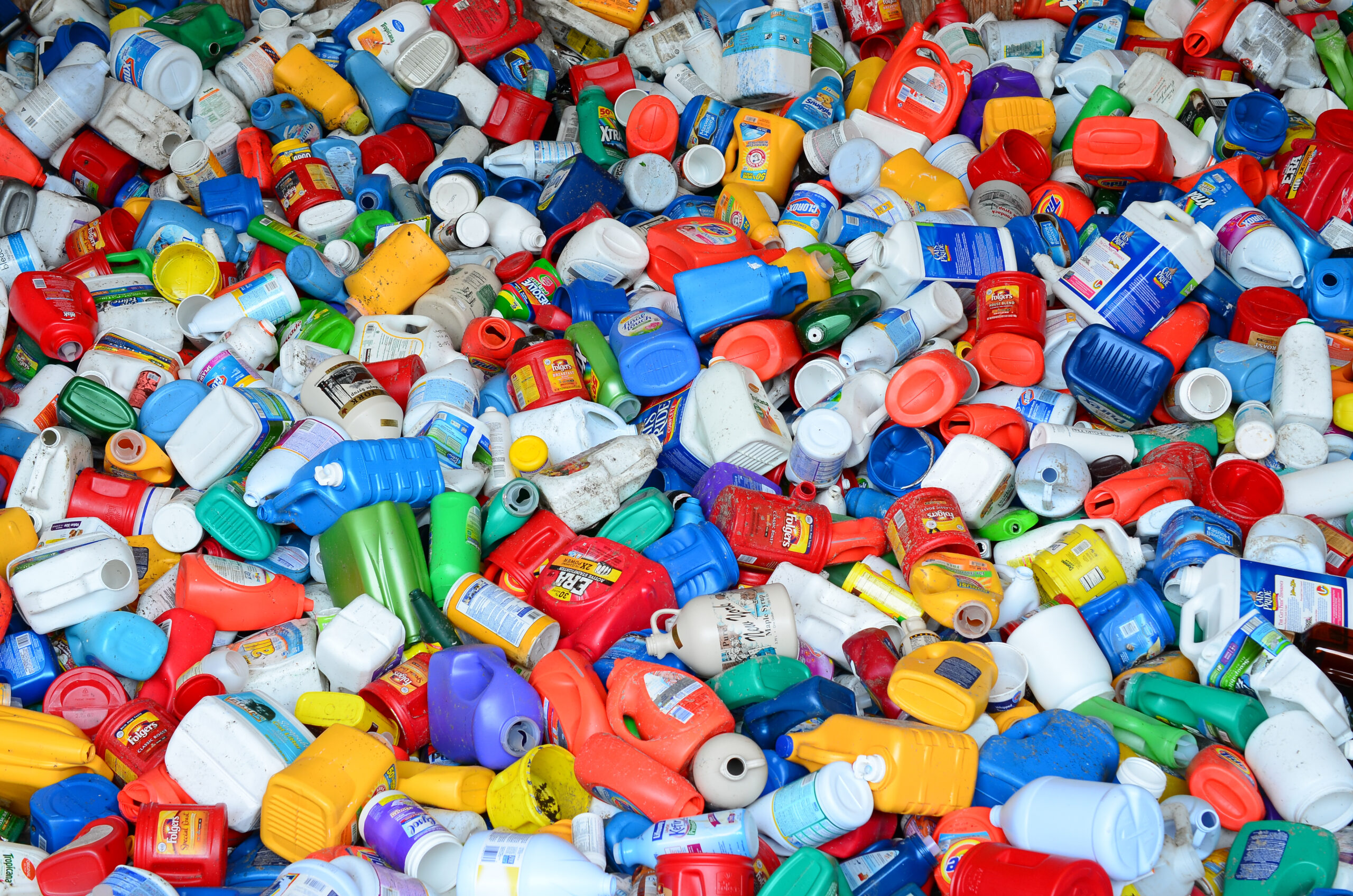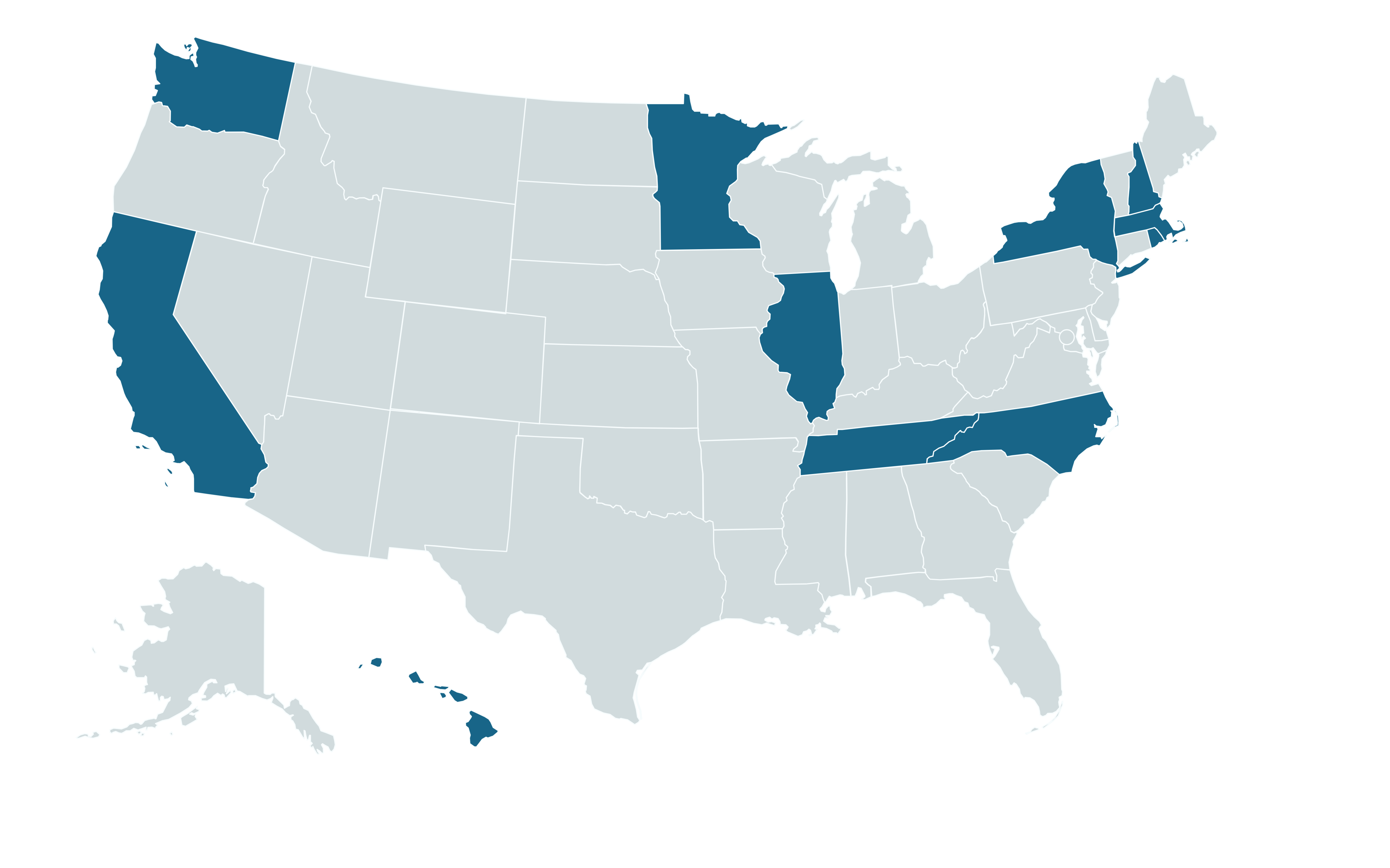
Policy Update
Producer Responsibility for Plastics: 2024 State Policy Trends
May 7, 2024
Overview
State lawmakers are advancing bills to make plastic producers more responsible for the waste they create through Extended Producer Responsibility (EPR) programs. EPR has been gaining traction as a promising waste management and reduction approach, with California, Colorado, Maine, and Oregon enacting EPR programs for plastic waste in recent years.
Building on legislation from these states, at least 11 other states have introduced 24 policies in 2024 to help improve their waste systems by establishing their own EPR for packaging programs.
Why EPR Matters in the Fight Against Plastic Pollution
America has a recycling problem: the U.S. currently only recycles 5% of plastics. The vast majority of plastic is buried in landfills, incinerated, or released into the natural environment. Plastic packaging – much of which is difficult to recycle – accounts for the largest share of plastic usage and represents a critically important area to address as states consider waste management and reduction solutions.
Extended Producer Responsibility (EPR) ensures producers of packaging materials assume responsibility for the cost of collecting and sorting recyclables at the end of their life. EPR shifts costs away from taxpayers and plays a crucial role in reducing plastic waste and spurring innovation toward more sustainable products and packaging.
The 2024 State of Play – Which States are Moving EPR Bills?
The 11 states that have introduced EPR for packaging legislation in 2024 take two primary policy approaches: (1) establishing new comprehensive EPR programs for plastics and other materials and (2) conducting studies to determine specific state needs and possible approaches for a statewide EPR program. As of May 2024, at least seven states have moved their EPR bills out of committee.

Establishment: New EPR Programs
- Minnesota’s S.F.3561 would require that producers of packaging and paper products implement and finance a statewide EPR program that encourages waste reduction, reuse, and sustainable packaging redesign.
- New York S.4246B/A.5322B would require companies selling, offering for sale, or distributing packaging materials and products to register with a packaging reduction organization to develop a packaging reduction and recycling plan. In addition, the bill would set packaging reduction and recycling rate targets while not including “chemical recycling” as part of recycling.
- Tennessee has introduced bipartisan legislation (S.B.573) that would establish a Producer Responsibility Organization to develop a proposal for addressing the state’s recycling needs as well as an EPR plan for producers of packaging products.
- Other states that have considered legislation to establish new EPR programs this year include Illinois, North Carolina, Rhode Island, and New Hampshire.
Laying the Groundwork: Planning and Studying EPR Approaches
- Hawaii has passed H.B.1688 through one chamber. This bill would require the state’s Department of Health to conduct a statewide assessment and establish an advisory council to determine how Hawaii can transition to a more circular system that includes an EPR program for packaging materials and paper products.
- Hawaii H.B.2740 would establish a zero waste initiative in the Department of Health with the goal of zero waste deposited to landfills or incinerated. The bill includes EPR as an essential component of this initiative.
- Massachusetts H.833 would establish a commission to study and report on implementing EPR laws for a range of products including consumer packaging and printed materials.
Stay Informed on State Policy With NCEL
Stay up to date on trends in EPR and plastic pollution policy across the country this year with NCEL’s Bill Tracking Map.